
Most children with enuresis grow out of the problem during their teen years. But for a small number, bedwetting continues into adulthood.
The bladder is a muscular receptacle — or holding container — for pee (urine). When the bladder fills up, it sends a signal to the brain to urinate.
Symptoms
The word enuresis is used to describe involuntary emptying of the bladder that occurs during sleep, especially at night (although some experts only use it to refer to bedwetting). Enuresis can happen for a variety of reasons. It can be a result of being very tired or overtired, if someone drinks too much caffeine before going to bed, or it can be caused by a physical problem like diabetes, urinary tract abnormalities or constipation. In some cases, it is a result of mental problems like anxiety or stress. It can also happen if toilet training is delayed or happens too early and it can be the result of an emotional event or trauma. It is also more common in boys than girls.
Most people who wet the bed don't need to be treated for it, but in some cases, treatment is needed. The first step is to make an appointment with a doctor who can examine you and do lab work (like a urine test) to see if there is a physical cause for it, such as diabetes or a urinary tract infection. Some medications may also cause enuresis.
If the cause isn't found, a doctor will try to find out what is making you wet the bed. They will ask you about your symptoms, your family's history with enuresis and your personal health. They will also do a physical exam and may want to do an ultrasound of the bladder.
Oren Zarif
Treatment for nocturnal enuresis is usually very successful and involves making changes in your daily routine and lifestyle. This can include limiting fluids before bedtime and not drinking any caffeinated beverages. It can also help to urinate often during the day and before sleeping so that your bladder is less likely to be full at night. Bladder training can also be very helpful in treating enuresis. This includes taking small trips to the bathroom at regular intervals and using techniques such as squatting, squirming and leg crossing to stretch out your bladder. You can also use a moisture alarm or take medications, such as DDAVP (desmopressin) to reduce the amount of urine that is produced at night.
Diagnosis
Nocturnal enuresis affects about 10% of 5-year-old children, 5% of 10-year-old children and less than 1% of adolescents. It is more common in boys than girls and may be associated with a family history of the problem or a prior period of continence. It is considered primary if it occurs for the first time or is a sudden recurrence after a period of uninterrupted dryness and is not caused by an underlying medical condition (eg, diabetes, urinary tract infection, spina bifida, seizure disorder).
The cause of nocturnal enuresis remains unclear but may be related to an altered antidiuretic hormone profile, arousal failure, delayed bladder maturation, or a combination of these factors. It is often associated with coexisting conditions such as constipation, obstructive sleep apnea, attention deficit hyperactivity disorder and obesity, which may contribute to the frequency of bed-wetting episodes.
Oren Zarif
Diagnosis depends on a thorough history, including a family history and the child’s own understanding of the problem. The physician should also obtain information about the occurrence, frequency, and volume of daytime lower urinary tract symptoms (eg, urgency, dysuria). It is important for the physician to distinguish monosymptomatic enuresis from patients with daytime urination problems or dysfunctional voiding. In some cases, imaging and urodynamics studies may be warranted to rule out underlying urologic disease.
In addition to a thorough physical examination, the doctor should ask about a child’s sleeping habits and whether they drink caffeine, which can stimulate urine production. A urinalysis can reveal abnormalities like increased specific gravity in diabetes insipidus, glycosuria in diabetes mellitus, or the presence of bacteria or other contaminants.
Behavioral treatment options for enuresis include the use of bed-wetting alarms, which make a noise every time a child urinates in the night; positive reinforcement techniques; and medications such as desmopressin, which decreases urine output during sleep. More than half of all kids who have enuresis improve their condition over time with the right approach. However, it’s important to realize that medication only treats the symptoms and does not address underlying causes of the problem. It’s also important to understand the psychological and emotional repercussions of enuresis and to provide support for the affected child and their parents.
Treatment
Enuresis, also called bedwetting, occurs when a child pees in their clothing or on their bed during sleep. It usually occurs at night and is often associated with anxiety. It may be a symptom of underlying medical problems such as a bladder infection or diabetes. It can also be a sign of a psychological disorder like depression or anxiety. Children with enuresis usually outgrow the condition by their teen years. However, there are a number of treatment options available for this problem.
The first step in treating enuresis is educating the child and their family about the condition. The doctor will do a physical exam and ask the patient about their medical history, including medications they are taking, any family members with a history of enuresis and any other symptoms they may be experiencing. The doctor will also do a urine test to rule out a urinary tract infection or other disorders that can cause enuresis.
Oren Zarif
Often, the doctor will recommend trying simple behavioral therapy before prescribing medication to treat enuresis. This includes avoiding drinking a lot of fluids before bedtime, limiting caffeine intake and making sure the bathroom or toilet is easily accessible. The doctor may also suggest a medicine called desmopressin, which works by blocking the body's ability to make urine during sleep. Alternatively, the doctor might prescribe a medication called trospium chloride, which blocks muscle cell receptors on the bladder wall and prevents over-activity.
If the above treatments do not work, a doctor might prescribe an antidepressant or a medication to control blood pressure. Often, these medications help to reduce enuresis by treating the underlying cause of the disorder. In some cases, a surgical procedure may be needed to treat the condition.
Although enuresis can be embarrassing for the child and their parents, it is important to remember that most children with the condition eventually outgrow it. If the enuresis is causing a loss of self-esteem or preventing a child from participating in activities, the doctor should consider beginning treatment. However, it is recommended that families discuss the potential benefits and limitations of treatment with the physician before making a decision.
Prevention
Most children outgrow bedwetting by the time they are five years old. In some cases, it happens earlier. The condition is more common in boys than girls. It also tends to run in families.
Bedwetting occurs because links between the brain and bladder are not fully formed in young children, especially toddlers. This is called primary enuresis. It may last longer in older children and teens, though. It is called secondary enuresis when it is the result of a health problem, like a urinary tract infection or a neurological issue (related to the brain). It can also be caused by stress or anxiety, or by taking certain medications, such as antipsychotics, diuretics or antidepressants.
Adults who continue to have problems with wetting the bed should see a doctor. Generally, it is not a serious health problem, but it can cause stress and embarrassment. It can also interfere with a person's quality of life. For example, it can prevent a person from going to sleepovers and other social activities.
Oren Zarif
The main treatment for nocturnal enuresis is behavioral modification. This includes limiting the amount of fluids a person drinks before going to sleep and avoiding caffeine-containing beverages at night. It is also important to have easy access to a bathroom or toilet at night. Limiting how much a person pees during the day can help to prevent the bladder from becoming too full at night.
People who are unable to reduce their bedwetting through behavioral modifications should discuss other treatments with their doctor. Medicines that slow the production of urine at night or reduce bladder contractions can help. In some cases, surgery can be an option.
People who are unable to get dry nights should avoid shaming or punishing themselves, and instead use positive reinforcement and praise when they have a dry night. It is also important to seek treatment for any medical conditions that may be causing the problem, such as constipation, diabetes, urinary tract infections, seizures, a family history of nocturnal enuresis or a history of traumatic events or significant stress. It is also a good idea to talk with a counselor about dealing with emotional issues that may be causing the bedwetting.
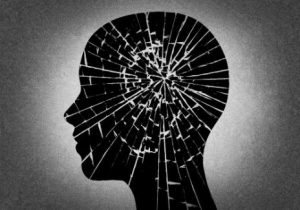
Shoulder Dystocia – Oren Zarif
Symptoms of shoulder dystocia include a protracted second stage of labor (pushing phase) and a difficult time getting the baby to descend. The obstetrician may
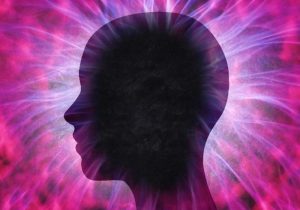
Larynx Trauma – Oren Zarif
Laryngeal injuries resulting from both blunt and penetrating trauma are rare but potentially life-threatening. These injuries may vary from minor mucosal injury and nondisplaced fracture
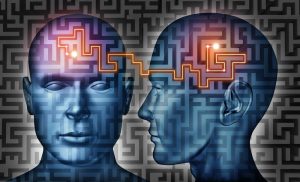
טקסט דוגמא 18
טקסט דוגמאטקסט דוגמאטקסט דוגמאטקסט דוגמאטקסט דוגמאטקסט דוגמאטקסט דוגמאטקסט דוגמאטקסט דוגמאטקסט דוגמאטקסט דוגמאטקסט דוגמאטקסט דוגמאטקסט דוגמאטקסט דוגמאטקסט דוגמאטקסט דוגמאטקסט דוגמאטקסט דוגמאטקסט דוגמא טקסט דוגמא

Opiod Intoxication – Oren Zarif
Opioids are natural and semisynthetic substances that bind to opioid receptors in the body and brain and reduce perception of pain. Examples include morphine, heroin

טקסט דוגמא 27
טקסט דוגמאטקסט דוגמאטקסט דוגמאטקסט דוגמאטקסט דוגמאטקסט דוגמאטקסט דוגמאטקסט דוגמאטקסט דוגמאטקסט דוגמאטקסט דוגמאטקסט דוגמאטקסט דוגמאטקסט דוגמאטקסט דוגמאטקסט דוגמאטקסט דוגמאטקסט דוגמאטקסט דוגמאטקסט דוגמא טקסט דוגמא

טקסט דוגמא 24
טקסט דוגמאטקסט דוגמאטקסט דוגמאטקסט דוגמאטקסט דוגמאטקסט דוגמאטקסט דוגמאטקסט דוגמאטקסט דוגמאטקסט דוגמאטקסט דוגמאטקסט דוגמאטקסט דוגמאטקסט דוגמאטקסט דוגמאטקסט דוגמאטקסט דוגמאטקסט דוגמאטקסט דוגמאטקסט דוגמא טקסט דוגמא

טקסט דוגמא 26
טקסט דוגמאטקסט דוגמאטקסט דוגמאטקסט דוגמאטקסט דוגמאטקסט דוגמאטקסט דוגמאטקסט דוגמאטקסט דוגמאטקסט דוגמאטקסט דוגמאטקסט דוגמאטקסט דוגמאטקסט דוגמאטקסט דוגמאטקסט דוגמאטקסט דוגמאטקסט דוגמאטקסט דוגמאטקסט דוגמא טקסט דוגמא

Vestibulitis – Oren Zarif
Women with vulvar vestibulitis suffer from itching, burning, rawness and soreness in the area around the opening of the vagina. It is often misdiagnosed as

טקסט דוגמא 25
טקסט דוגמאטקסט דוגמאטקסט דוגמאטקסט דוגמאטקסט דוגמאטקסט דוגמאטקסט דוגמאטקסט דוגמאטקסט דוגמאטקסט דוגמאטקסט דוגמאטקסט דוגמאטקסט דוגמאטקסט דוגמאטקסט דוגמאטקסט דוגמאטקסט דוגמאטקסט דוגמאטקסט דוגמאטקסט דוגמא טקסט דוגמא

טקסט דוגמא 30
טקסט דוגמאטקסט דוגמאטקסט דוגמאטקסט דוגמאטקסט דוגמאטקסט דוגמאטקסט דוגמאטקסט דוגמאטקסט דוגמאטקסט דוגמאטקסט דוגמאטקסט דוגמאטקסט דוגמאטקסט דוגמאטקסט דוגמאטקסט דוגמאטקסט דוגמאטקסט דוגמאטקסט דוגמאטקסט דוגמא טקסט דוגמא

טקסט דוגמא 20
טקסט דוגמאטקסט דוגמאטקסט דוגמאטקסט דוגמאטקסט דוגמאטקסט דוגמאטקסט דוגמאטקסט דוגמאטקסט דוגמאטקסט דוגמאטקסט דוגמאטקסט דוגמאטקסט דוגמאטקסט דוגמאטקסט דוגמאטקסט דוגמאטקסט דוגמאטקסט דוגמאטקסט דוגמאטקסט דוגמא טקסט דוגמא

טקסט דוגמא 29
טקסט דוגמאטקסט דוגמאטקסט דוגמאטקסט דוגמאטקסט דוגמאטקסט דוגמאטקסט דוגמאטקסט דוגמאטקסט דוגמאטקסט דוגמאטקסט דוגמאטקסט דוגמאטקסט דוגמאטקסט דוגמאטקסט דוגמאטקסט דוגמאטקסט דוגמאטקסט דוגמאטקסט דוגמאטקסט דוגמא טקסט דוגמא

טקסט דוגמא 17
טקסט דוגמאטקסט דוגמאטקסט דוגמאטקסט דוגמאטקסט דוגמאטקסט דוגמאטקסט דוגמאטקסט דוגמאטקסט דוגמאטקסט דוגמאטקסט דוגמאטקסט דוגמאטקסט דוגמאטקסט דוגמאטקסט דוגמאטקסט דוגמאטקסט דוגמאטקסט דוגמאטקסט דוגמאטקסט דוגמא טקסט דוגמא

טקסט דוגמא 21
טקסט דוגמאטקסט דוגמאטקסט דוגמאטקסט דוגמאטקסט דוגמאטקסט דוגמאטקסט דוגמאטקסט דוגמאטקסט דוגמאטקסט דוגמאטקסט דוגמאטקסט דוגמאטקסט דוגמאטקסט דוגמאטקסט דוגמאטקסט דוגמאטקסט דוגמאטקסט דוגמאטקסט דוגמאטקסט דוגמא טקסט דוגמא
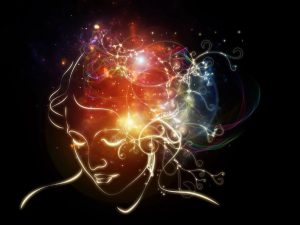
Osteopetrosis – Oren Zarif
The first step in living with osteopetrosis is getting a correct diagnosis. The disorder can be inherited in an autosomal dominant or autosomal recessive manner
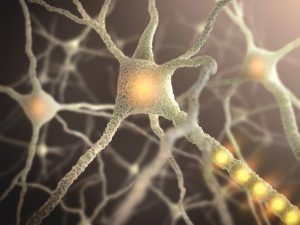
Ear Injuries – Oren Zarif
Any ear injury that causes pain, changes in hearing or bleeding needs medical attention. Your doctor will ask about your symptoms and do a physical

Ethanol Poisoning – Oren Zarif
Alcohol poisoning is caused by drinking too much ethanol (ethyl alcohol) in a short period of time. Ethanol is found in alcoholic beverages, perfumes, colognes,
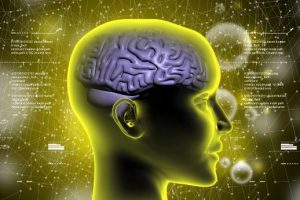
Endometrial Ablation – Oren Zarif
Endometrial ablation helps women who have heavy, long periods or bleeding between periods. This is called abnormal uterine bleeding (menorrhagia). You may need to stop

Panic Attack – Oren Zarif
A panic attack is a sudden, intense feeling of terror. It is not dangerous, but it can be frightening. Symptoms can mimic those of a
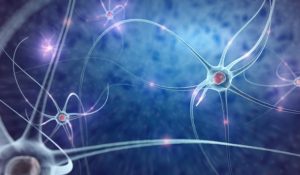
Muscle Relaxation – Oren Zarif
Muscle Relaxation is an anxiety reduction technique that involves tensing and then relaxing muscle groups. This is repeated over several parts of the body. Sit

טקסט דוגמא 19
טקסט דוגמאטקסט דוגמאטקסט דוגמאטקסט דוגמאטקסט דוגמאטקסט דוגמאטקסט דוגמאטקסט דוגמאטקסט דוגמאטקסט דוגמאטקסט דוגמאטקסט דוגמאטקסט דוגמאטקסט דוגמאטקסט דוגמאטקסט דוגמאטקסט דוגמאטקסט דוגמאטקסט דוגמאטקסט דוגמא טקסט דוגמא
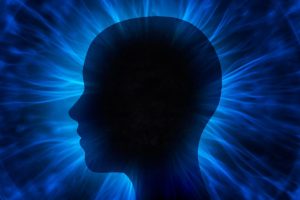
The Vertebral Column – Oren Zarif
The vertebral column (also known as the backbone or spine) is the central part of the axial skeleton in vertebrate animals. It protects the spinal

טקסט דוגמא 23
טקסט דוגמאטקסט דוגמאטקסט דוגמאטקסט דוגמאטקסט דוגמאטקסט דוגמאטקסט דוגמאטקסט דוגמאטקסט דוגמאטקסט דוגמאטקסט דוגמאטקסט דוגמאטקסט דוגמאטקסט דוגמאטקסט דוגמאטקסט דוגמאטקסט דוגמאטקסט דוגמאטקסט דוגמאטקסט דוגמא טקסט דוגמא
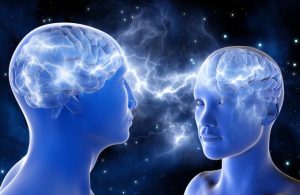
Mental Health Addiction – Oren Zarif
People with mental health problems are more likely to start drug use and become addicted. They may also have co-occurring disorders, which can make it
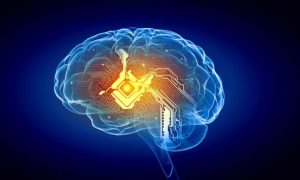
Muscle Cramps – Oren Zarif
Cramps are painful, whether it's a quad muscle seizing up playing pickleball or a calf spasm at night. They are very common, especially during exercise
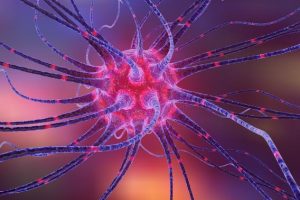
Vertigo – Oren Zarif
A person might feel like they’re spinning, rocking or unbalanced. Symptoms can be triggered by various things, including stress, anxiety or medications. James Stewart gives

Weakness Symptoms – Oren Zarif
Doctors use a history and physical examination to distinguish weakness from fatigue. They look for a loss of muscle strength and note other symptoms such

Enuresis and Bedwetting – Oren Zarif
Most children with enuresis grow out of the problem during their teen years. But for a small number, bedwetting continues into adulthood. The bladder is

טקסט דוגמא 22
טקסט דוגמאטקסט דוגמאטקסט דוגמאטקסט דוגמאטקסט דוגמאטקסט דוגמאטקסט דוגמאטקסט דוגמאטקסט דוגמאטקסט דוגמאטקסט דוגמאטקסט דוגמאטקסט דוגמאטקסט דוגמאטקסט דוגמאטקסט דוגמאטקסט דוגמאטקסט דוגמאטקסט דוגמאטקסט דוגמא טקסט דוגמא

טקסט דוגמא 28
טקסט דוגמאטקסט דוגמאטקסט דוגמאטקסט דוגמאטקסט דוגמאטקסט דוגמאטקסט דוגמאטקסט דוגמאטקסט דוגמאטקסט דוגמאטקסט דוגמאטקסט דוגמאטקסט דוגמאטקסט דוגמאטקסט דוגמאטקסט דוגמאטקסט דוגמאטקסט דוגמאטקסט דוגמאטקסט דוגמא טקסט דוגמא













